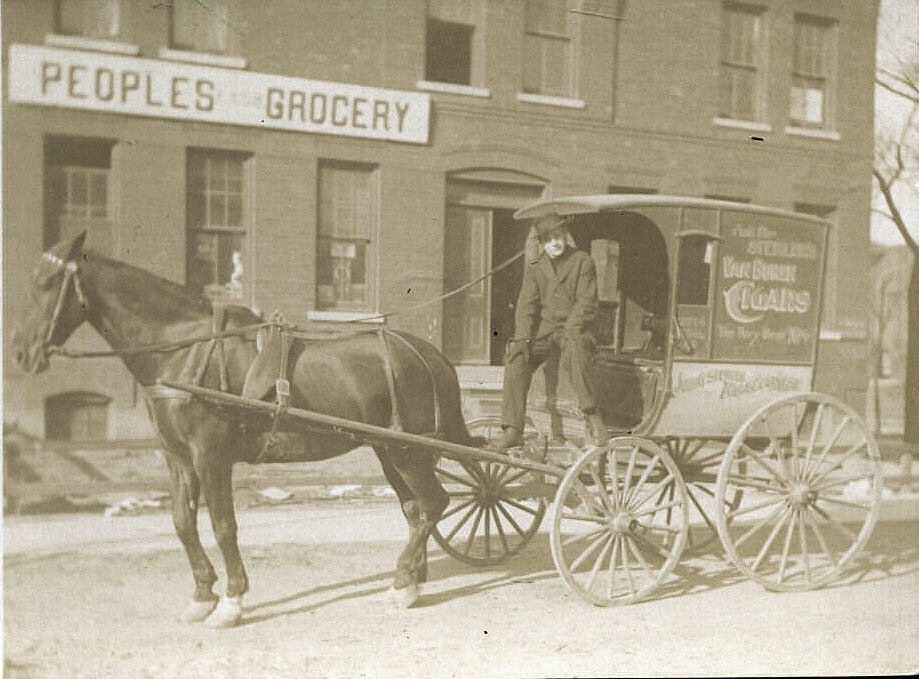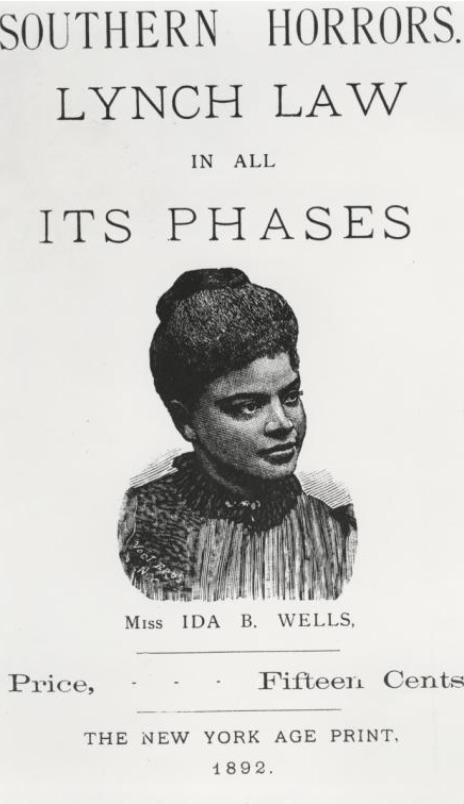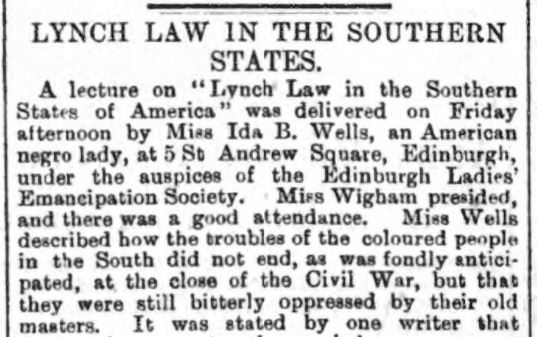Thomas Moss, Clavin McDowell, and Will Stewart, Black owners of a thriving grocery store, opened their business across from W.R. Barrett, a white man. Feeling threatened by their success, he accused them of running, "...a low dive in which drinking and gambling were carried on ...and a resort of thieves and thugs." They were arrested but later dragged from jail by a white mob. Before Moss was shot, he spoke his final words: “Tell my people to go West – there is no justice for them here.” Stewart and McDowell were shot and then McDowell's eyes were gouged out.
Devastated, Wells took on the responsibility of exposing the brutal realities of their lynchings.
"This is what opened my eyes to what lynching really was: an excuse to get rid of Negroes who were acquiring wealth and property and thus keep the race terrorized."
-Ida B. Wells, Free Press, 1892


